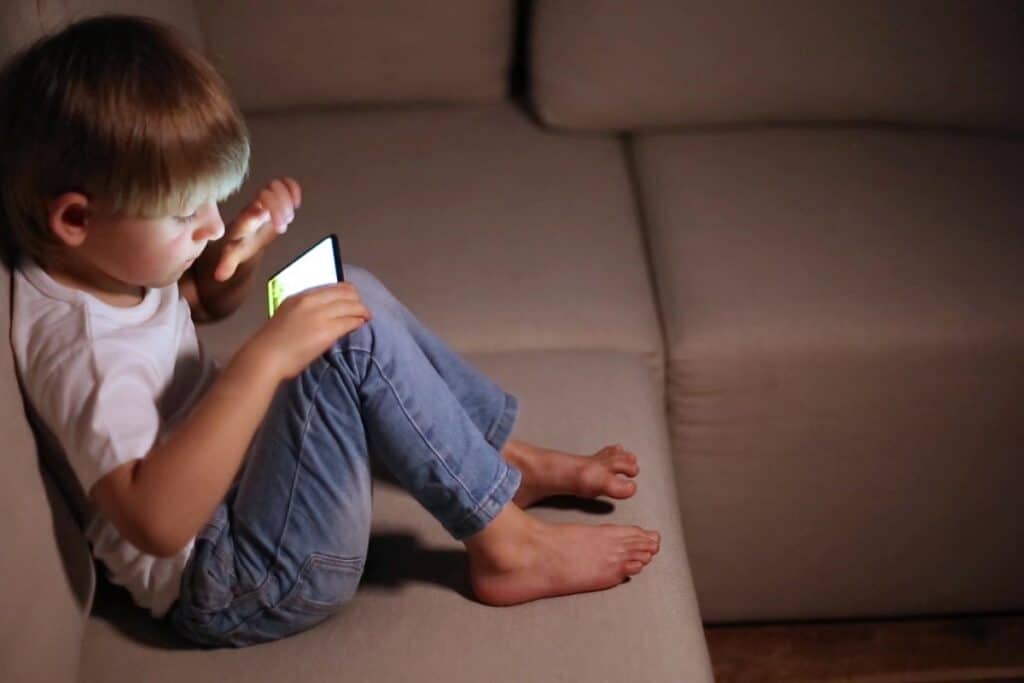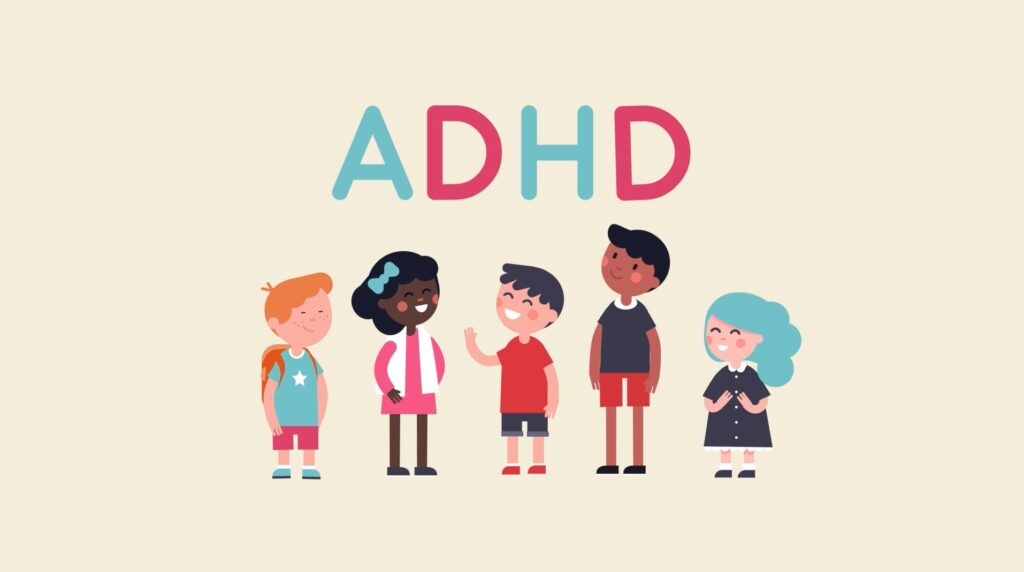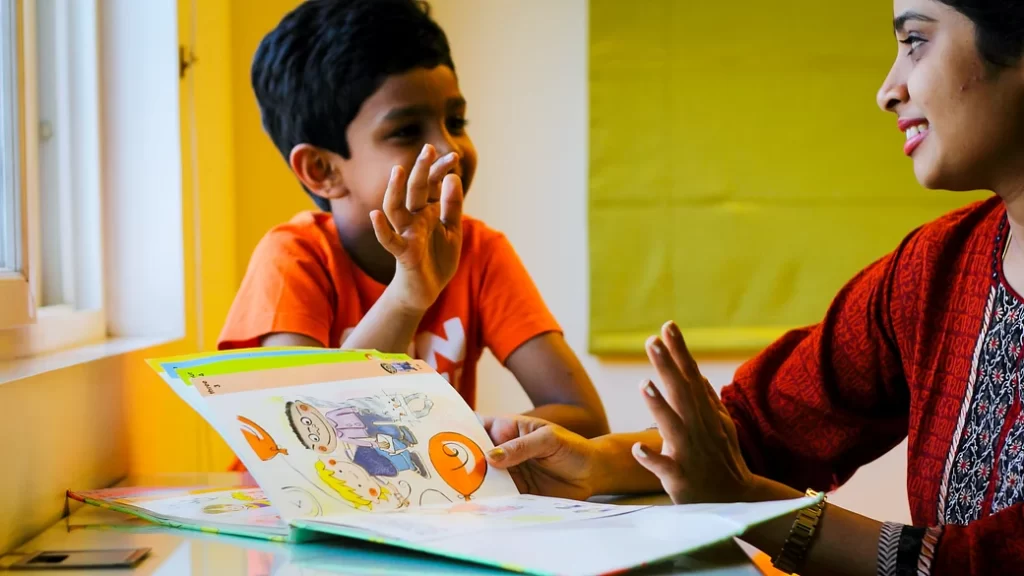You probably didn’t start out worried about screen time. You started noticing changes. Your child gets unusually upset when the phone is taken away. Homework, meals, or bedtime seem to work only when a screen is involved. Their mood, attention, or behaviour doesn’t feel the same as it used to.
Screens are part of everyday life. You use them, your child uses them, and in many situations they make things easier. The concern begins when your child starts needing a screen to stay calm, focused, or settled. When stopping screen use leads to distress or conflict, it’s no longer just a habit.
You might be seeing irritability, restlessness, difficulty switching off, sleep problems, or less interest in play and conversation. These reactions are not about your child being stubborn or disobedient. They are linked to how constant stimulation affects a developing brain.
Once you understand what’s happening underneath the behaviour, it becomes easier to respond in ways that reduce tension instead of increasing it.
Why Mobile Addiction Feels Different for Children Today
Mobile addiction in children looks different from the screen use many adults remember growing up with. Mobile phones are always available, always personal, and always stimulating. A child does not need to wait for a programme or finish a level. Content is endless and immediate.
For a child, this constant access matters. Mobile addiction develops when the phone becomes a primary way to manage boredom, frustration, or emotional discomfort. The device starts doing the regulating work that a child’s brain is still learning to do on its own.
This is why mobile addiction often shows up as strong emotional reactions when the phone is taken away. The distress is not only about losing the device. It is about suddenly having to cope without the tool that has been helping the child stay calm or occupied.
When a child struggles to stop using a mobile phone, it does not mean they are being difficult or manipulative. It reflects how their nervous system has adapted to constant stimulation and quick rewards.
Understanding this is important before trying to change behaviour, because mobile addiction is driven by emotional dependence, not a lack of discipline.
“Is My Child Addicted, Or Is This Just Modern Childhood?”
This is usually where parents feel unsure. Children use phones a lot now, so it can be hard to tell what is normal and what is not. Mobile addiction is not about how many hours your child spends on the phone on a busy day. It is more about how your child reacts when the phone is not available.
If your child can put the phone down without much difficulty, shift to other activities, and stay emotionally steady, that is usually heavy use, not addiction. Mobile addiction starts when the phone becomes something your child needs in order to feel calm, settled, or okay.
You might notice that without the phone your child becomes unusually anxious, irritable, or restless. They may struggle to eat, sleep, do homework, or engage with others unless the phone is involved. In some cases, they may constantly ask for the phone, sneak it, or become distressed when limits are set.
This does not happen because a child lacks self-control. A child’s ability to regulate impulses is still developing. When a mobile phone becomes the main source of comfort or stimulation, dependence can form quickly.
Looking at how your child functions without the phone gives you a clearer picture than focusing only on screen time limits.
What Parents Usually Notice First When Mobile Addiction Starts
Mobile addiction in children rarely appears overnight. It usually shows up through repeated changes in behaviour and routines. These signs often feel confusing at first, because they don’t look like obvious rule-breaking.
Strong emotional reactions when the mobile phone is taken away
One of the earliest signs of mobile addiction is an intense reaction when the phone is removed or restricted. Your child may become unusually angry, anxious, or distressed, even if the phone was taken away for a short time. The reaction often feels bigger than the situation and can be difficult to calm.
Difficulty staying settled without a phone
You may notice that your child struggles to stay occupied or relaxed without a mobile phone. Boredom feels unbearable. Waiting becomes hard. Quiet activities no longer hold attention. The phone starts to feel necessary for your child to remain calm or cooperative.
Loss of interest in play and offline activities
Children with growing mobile addiction often lose interest in activities they once enjoyed. Play becomes brief or unfocused. Outdoor activities, hobbies, and creative play may be avoided or rushed. Conversations can feel shorter, with your child’s attention quickly drifting back to the phone.
Using the mobile phone to cope with daily routines
Another common pattern is reliance on the phone during meals, before bedtime, or during transitions. Your child may eat, fall asleep, or calm down more easily when a phone is involved. Over time, these routines can feel impossible without the device.
Constant checking and preoccupation with the phone
You might notice frequent checking of the phone, even without notifications. Your child may talk about the phone often, ask for it repeatedly, or seem distracted when it is nearby. In some cases, children may begin sneaking the phone or becoming defensive when asked about usage.
Resistance and conflict around limits
When limits are introduced, children with mobile addiction often respond with resistance rather than adjustment. This can include arguing, bargaining, emotional outbursts, or shutting down. These reactions are not deliberate misbehaviour. They reflect how strongly the phone has become linked to emotional regulation.
Recognising these behaviours early allows you to respond with more understanding and less escalation. Mobile addiction is shaped by patterns over time, not by a single behaviour or parenting decision.

Why Taking the Mobile Phone Away Often Leads to Meltdowns
When a child is dealing with mobile addiction, taking the phone away can trigger reactions that feel sudden and extreme. This often leaves parents feeling confused or unsure about how to respond. It helps to understand what is happening underneath the behaviour.
A mobile phone provides constant stimulation and quick emotional relief. Over time, a child’s brain begins to rely on this stimulation to stay regulated. When the phone is removed, the child is left without the tool they have been using to manage boredom, frustration, or emotional discomfort.
This is why reactions can include anger, panic, crying, or complete shutdown. The response is not about testing limits or being deliberately difficult. It is a stress response. The nervous system has learned to depend on the phone to feel settled, and removing it suddenly creates a sense of loss and overwhelm.
For younger children, this can look like tantrums. For older children or teenagers, it may show up as withdrawal, irritability, or defiance. In both cases, the underlying issue is the same. The child has not yet developed enough internal regulation skills to cope without the phone.
When Mobile Addiction Starts Affecting Mood and Emotions
You may notice changes in your child’s mood before anything else. They seem more irritable, more sensitive, or harder to calm, especially when the mobile phone is not available. Small frustrations can lead to strong reactions.
Some children become anxious or restless without their phone. Others appear emotionally flat or less interested in conversation and activities they once enjoyed. These changes often feel confusing because the child may seem settled while using the phone.
Mobile addiction can turn the phone into a coping tool. It distracts from stress, boredom, or loneliness and provides quick emotional relief. Over time, this reduces a child’s ability to manage emotions without the phone, making everyday feelings harder to handle.
This is not about diagnosis. It is about understanding how constant mobile use shapes emotional responses and learning how to support healthier emotional regulation.
Attention, Learning, and the Worry About “Something Bigger”
When mobile addiction affects attention, many parents start worrying about ADHD or long-term learning problems. This concern is understandable, especially when focus and schoolwork change suddenly.
Heavy mobile use trains the brain to expect constant stimulation and quick rewards. As a result, slower activities like reading, writing, or problem-solving can feel difficult. Attention drops not because a child cannot focus, but because their brain has become used to high levels of input.
This pattern can look similar to ADHD. Restlessness, poor concentration, and impatience often overlap. In many cases, these changes improve when mobile use is reduced gradually and attention skills are rebuilt. It is not always a permanent issue.
It is usually reasonable to observe and make changes when attention problems appear mainly around heavy mobile use. Seeking support becomes important if focus difficulties are persistent, appear across many settings, or continue even after screen habits are addressed.
Sleep, Tired Bodies, and Children Who Never Seem Rested
Sleep problems are often one of the earliest signs of mobile addiction. You may notice that your child struggles to fall asleep, wakes frequently, or seems tired even after a full night in bed.
Mobile phones keep the brain alert. Bright screens, fast content, and constant stimulation make it harder for a child’s body to slow down. Over time, this disrupts natural sleep rhythms. Poor sleep then affects mood, attention, and behaviour during the day.
Some children also experience headaches, eye strain, or general fatigue. These physical signs are easy to overlook, but they often appear before emotional or behavioural issues become obvious. When you start noticing repeated tiredness along with heavy mobile use, it helps to look at the pattern rather than treating each symptom separately.
Social Changes Parents Quietly Worry About
Many parents notice social changes but hesitate to name them. A child may spend less time talking with family, avoid shared activities, or prefer staying on the phone even when others are around.
Mobile addiction can make online interaction feel easier than face-to-face connection. Screens offer control and predictability, while real-world interactions require effort, patience, and emotional flexibility. Over time, some children begin choosing the phone over people.
This does not mean your child is losing social skills or becoming disconnected permanently. It reflects a shift in comfort. Understanding this shift helps you support healthier connections without forcing or shaming.
Why This Affects Some Children More Than Others
Parents often compare children and wonder why one struggles more with mobile addiction than another. The answer is rarely simple.
Some children are more emotionally sensitive or easily overstimulated. Others turn to mobile phones when they feel bored, stressed, or under-challenged. Temperament plays a role, as does how a child handles emotions and transitions.
Adult screen habits also matter. Children learn how to use technology by watching how it is used around them. This is not about blame. It is about recognising influence.
Seeing these factors together helps replace self-criticism with understanding and makes it easier to respond thoughtfully rather than reactively.
Researchers and clinicians often describe this pattern as problematic smartphone use, a term used to explain when mobile phone use starts interfering with emotional regulation, daily functioning, and behaviour rather than serving a practical purpose.

The Daily Battles That Wear Parents Down
At some point, screen use stops being a small concern and starts shaping daily life. You may find yourself negotiating constantly, arguing over limits, or giving in simply to get through the day. This is exhausting.
Many parents rely on screens during busy moments. Mornings, meals, work calls, travel, or when everyone is tired. The phone becomes a way to keep things moving. Over time, it can start to feel like removing it will make everything fall apart.
That fear is real. When every attempt to limit phone use leads to conflict, it is natural to avoid it. Naming this struggle matters, because mobile addiction does not develop in isolation. It grows inside real family pressures and routines.
What Healthy Mobile Use Actually Looks Like, and When to Pause
Healthy mobile use is less about strict time limits and more about balance. A child can use a phone regularly and still function well without it. The concern begins when mobile use affects sleep, mood, learning, or relationships.
Patterns matter more than hours. How easily your child stops using the phone. Whether they can stay calm without it. How they manage daily routines when it is not available. These signs tell you more than numbers alone.
It is usually time to pause and reassess when mobile use becomes the main way your child copes, settles, or avoids discomfort. Pausing does not mean panic. It means noticing patterns and deciding to respond more intentionally.
Helping Your Child Reduce Mobile Dependence Without Breaking Trust
Sudden bans often backfire. When a phone has become a coping tool, removing it abruptly can increase distress and resistance. Change works better when it is gradual and predictable.
Reducing mobile addiction means helping your child rebuild skills they may have missed, such as tolerating boredom, managing emotions, and staying engaged without constant stimulation. Timers alone rarely do this.
Clear boundaries matter, but they work best when they feel consistent and safe rather than punitive. When children understand what to expect and feel supported through the discomfort, resistance often softens over time.
Talking to Your Child or Teen Without Creating More Resistance
How you talk about mobile addiction matters as much as what you do. Conversations that focus on blame or control usually lead to pushback or shutdown.
Children respond better when they feel included. Explaining concerns calmly, listening to their experience, and involving them in small changes builds cooperation. With teenagers, power struggles often make things worse. Respectful, honest conversations are more effective than strict enforcement.
The goal is not immediate compliance. It is helping your child understand their own habits and gradually take responsibility for change.
When It’s Time to Ask for Extra Support
Sometimes changes at home are not enough. Support can be helpful if mobile addiction is linked to ongoing anxiety, withdrawal, sleep disruption, or significant changes in behaviour or functioning.
Therapy is not about punishment or control. It focuses on helping children develop emotional regulation, coping skills, and healthier routines without relying on screens.
Seeking support does not mean you have failed. It means the situation needs more than limits alone, and that is okay.

How PsychiCare Walks With Families Through This
At PsychiCare, work with mobile addiction starts by understanding behaviour, not judging it. The focus is on what the phone is doing for the child and what skills are missing underneath that reliance.
Support centres on helping children develop emotional regulation, tolerance for discomfort, and healthier ways to manage boredom, stress, and frustration. Parents are involved in the process so changes at home feel realistic and sustainable, not rigid or overwhelming.
The aim is not to eliminate technology, but to reduce dependence and restore balance in daily life, so screens stop controlling routines, relationships, and emotions.
This Is Not a Parenting Failure
At some point, screens filled a need for your child. They helped your child cope, settle, or feel occupied when other skills were still developing. That does not mean you made a mistake.
Now you are noticing the limits of that coping method and looking for better options. That is not failure. It is adjustment.
Helping your child find other ways to manage emotions, boredom, and connection is part of parenting in a digital world. Change does not need to be perfect or immediate. It needs to be thoughtful and consistent.
That is how balance is rebuilt.




